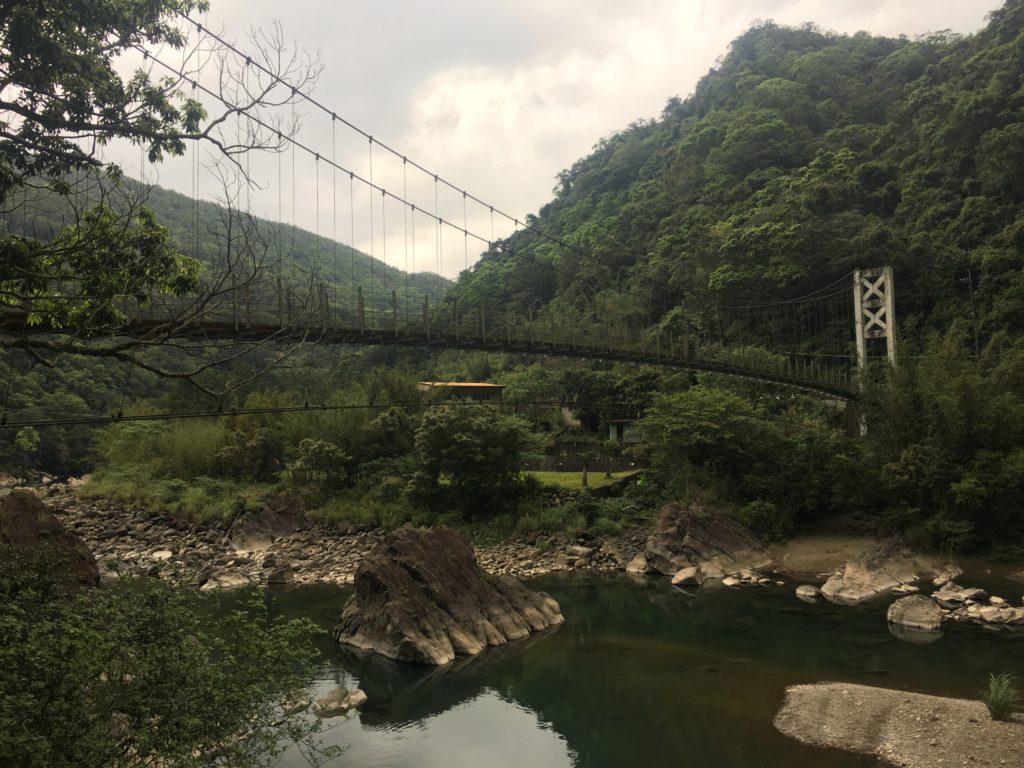When I first started writing When We Vanished, I was figuring it all out as I went along. I didn’t stop to question some of the important decisions I was making without even realizing it. Case in point: my characters’ racial and ethnic backgrounds. Originally, they were all “race neutral”—their race was never stated. At the time, I figured this was a good thing. That meant that they could be any race the reader wished to ascribe to them, right?
Well, no. As I came to learn, if race is not stated, the default assumption is that the characters are white. (Which says a lot about our society—and the fact that this was news to me also says a lot about my own whiteness.) Once I stepped back and considered it from this angle, I decided I didn’t want to create yet another story about white people “saving the world,” so to speak. And as it turned out, my characters had been dropping hints all along. When I began to pay attention, their backgrounds slowly came into focus.
Yet I had no idea, back then, just how much this decision would change my life—how it would change the way I think about everything, really. Over the years that I’ve been engaging with this topic, I’ve learned a lot. I’m not in any way positioning myself as an expert, though. Far from it: I’m still figuring out how to talk and write about this. But I thought I’d share a few of the lessons I’ve learned throughout the long, and often difficult, process of writing diverse characters.
Lesson 1: Do Your Research… But Go Beyond Cultural Details.
Several main characters in my novels come from an Iranian-American background; another is mixed race (Taiwanese/white). So my first step was to learn everything I could about both Iranian and Chinese culture. I devoured novels, movies, music, poetry, blog posts, newspaper articles, historical records, and memoirs. I began studying Persian, and dusted off the little bits of Mandarin that I’d absorbed while my husband was learning the language. We even took a family vacation to Taiwan in 2018!

This is the kind of research that I love doing—but at the same time, I was constantly faced with the extent of how much I didn’t know, and the many things I may never be able to fully understand.
I soon realized that this surface-level learning wasn’t really enough. It’s one thing to plunk some select details in, a few phrases in another language or a reference to a cultural touchstone, but those things don’t really get to the heart of how it feels to grow up immersed in a culture that isn’t shared by those around you, or the challenges of coming from mixed racial backgrounds, or the fact that one’s worldview is irrevocably shaped by how one is treated by society. And though I can try to imagine what life might look like from another perspective, everything I write is filtered through my own consciousness and therefore reflects my own experience to some extent.
Also, the more I learned, the more important it felt to explore racism on the many levels in which it affects people. Much emphasis is often given to the individual level, in which we make assumptions about people depending on their names or how they appear to us. This is often where talk about racism ends, but in truth it goes so much deeper than that, to the very bones of our public and private institutions. Institutional racism is just as important to consider; its consequences can be just as devastating.
Lesson 2: Be Aware of Your Biases—And Work On Unlearning Them.
I certainly didn’t want to reinforce racism and other structures of oppression in my own work, so I started seeking out articles by some truly excellent and thought-provoking writers that prompted me to ask myself the hard questions: do I, as a white person, have the right to be writing about people from different cultures than my own? Am I going to subconsciously include harmful stereotypes and end up doing more harm than good?
These questions don’t have straightforward answers. But much of my process relies on intuition, and I knew deep down that centering this story on non-white characters was the right approach, so I continued to press on. Still, I struggled to write about race in any meaningful way. I was constantly tiptoeing around it, afraid of doing it “wrong.” Eventually, I came to the realization that writing about different cultural and racial backgrounds is just as much about learning as it is about un-learning.
As a white person, I’ve been socialized my entire life not to talk about race. I’ve absorbed many unconscious biases and problematic beliefs. I have many blind spots. And confronting these things, becoming aware of them, was very, very hard. I would see stereotypes crop up in my work and be ashamed of my missteps—until I realized that mistakes are just another part of the learning process.
None of us are perfect. We all have biases that inform the way we think and behave. Figuring out how to challenge these when they come up without getting locked in shame spirals is an important skill—not only for writing, but for being a better human in general.
Lesson 3: Humility is Key. Also, Getting Feedback.
It’s essential to ask for feedback from readers who have first-hand experience with the cultures/issues you are exploring. I’ve been extremely fortunate to have several beta-readers scrutinize When We Vanished for cultural accuracy; they have been patient with me as I’ve struggled through the process, making many mistakes along the way. (However, any inaccuracies that remain are my own: ultimately, I’m the only one responsible for the words I’ve written.)
After all, even if you’ve spent a lot of time unlearning your biases, it’s not like you one day “get it” and everything flows effortlessly from there. No. It’s a continual process that involves curiosity, self-reflection, and practice every single day. Maybe that sounds overwhelming, but I actually found it freeing to let go of the idea that I will ever reach some kind of “perfection.” It’s important to keep a mindset of learning, instead of knowing. This helps preserve the humility that can prevent us from reverting to harmful tropes.
And that’s the key component to all of this, really: humility. Recognizing that we DON’T know everything. Recognizing that everyone experiences life in a different way—and all of those experiences are equally valid.
Let’s be honest: doing this kind of work can be uncomfortable, painful even. But that’s why racism is so endemic and hard to destroy. And perhaps this is why I’ve been drawn towards exploring this difficult topic through fiction. The world of a story can give people a safe place in which to experience life as others might, and to reflect on how that differs from their own upbringing, while honoring the complexity of these issues and the significant emotional tolls they take.
It would be easier not to bother with this, and that’s another sad truth of my privilege. As a white person, I have the option of whether or not to engage in this thorny battlefield. But avoiding it changes nothing, and can even make things worse. So I’m plunging into this with my eyes, and my heart, wide open.
Lesson 4: IT’S NOT ABOUT YOU.
This one is in caps because I have to remind myself of it ALL. THE. TIME. My fragile ego wants very badly to avoid the inevitable, yet well-founded, criticism I’ll face from the decisions I’ve made. I tend to react to such things by veering headlong into self-loathing: I’ve failed and I’m a horrible person and I shouldn’t have tried in the first place and maybe I should just quit this whole writing thing now because I’m obviously not very good at it.
But, you know what? It’s not about me. I’m not doing this to get a pat on the back for being a Good White Person. As much as my pesky ego wants me to believe that’s the ideal endpoint, it isn’t. This work isn’t about lifting myself up. It’s about challenging white supremacy and all the other deeply-entrenched and often-invisible systems of oppression that underlie our society.
There is no winning until these systems are dismantled. THAT is the real goal: the only goal that matters. But I don’t foster any illusions of doing this singlehandedly. No one person, or novel, is going to save the world. It will only be changed through a collective, widespread effort—and one way to contribute to that as an individual is to make sure your actions and values are in alignment. Even when it’s hard. Especially when it’s hard.
So, I’ll continue to work on quieting that ego in order to learn from the criticism I receive. Because when I take myself out of the equation, I can see it as the gift it is: an opportunity to improve my work, to make it more effective in its true goal of challenging systems of oppression.
Your Thoughts
Have you struggled with these issues as a writer? As a person? What are some books you’ve read that include excellent representation? Any related topics you’d like me to cover in future blog posts? The floor is yours!



Thank you for sharing this wonderful post Alanna. As a fan of your art I can totally see how much time, effort and care you put into your characters and world building. I love your humility and dedication to fighting racism!
Thanks, I really appreciate your comment–I definitely devote a lot of thought to this aspect of writing, though of course it’s always a work in progress and I’m always striving to do better!
Pingback: Persian-Style Rice with Barberries - Alanna Peterson
Pingback: My Journey to Publication - Alanna Peterson
Pingback: Where Shadows Grow: A Reading List - Alanna Peterson